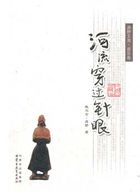Saxo's countrymen have praised without stint his remarkable style, for he has a style.It is often very bad; but he writes, he is not in vain called Grammaticus, the man of letters.His style is not merely remarkable considering its author's difficulties; it is capable at need of pungency and of high expressiveness.His Latin is not that of the Golden Age, but neither is it the common Latin of the Middle Ages.There are traces of his having read Virgil and Cicero.But two writers in particular left their mark on him.The first and most influential is Valerius Maximus, the mannered author of the "Memorabilia", who lived in the first half of the first century, and was much relished in the Middle Ages.From him Saxo borrowed a multitude of phrases, sometimes apt but often crabbed and deformed, as well as an exemplary and homiletic turn of narrative.Other idioms, and perhaps the practice of interspersing verses amid prose (though this also was a twelfth century Icelandic practice), Saxo found in a fifth-century writer, Martianus Capella, the pedantic author of the "De Nuptiis Philologiae et Mercurii" Such models may have saved him from a base mediaeval vocabulary; but they were not worthy of him, and they must answer for some of his falsities of style.These are apparent.His accumulation of empty and motley phrase, like a garish bunch of coloured bladders; his joy in platitude and pomposity, his proneness to say a little thing in great words, are only too easy to translate.We shall be well content if our version also gives some inkling of his qualities; not only of what Erasmus called his "wonderful vocabulary, his many pithy sayings, and the excellent variety of his images"; but also of his feeling for grouping, his barbaric sense of colour, and his stateliness.For he moves with resource and strength both in prose and verse, and is often only hindered by his own wealth.
With no kind of critical tradition to chasten him, his force is often misguided and his work shapeless; but he stumbles into many splendours.
FOLK LORE INDEX.
The mass of archaic incidents, beliefs, and practices recorded by the 12th-century writer seemed to need some other classification than a bare alphabetic index.The present plan, a subject-index practically, has been adopted with a view to the needs of the anthropologist and folk-lorist.Its details have been largely determined by the bulk and character of the entries themselves.
No attempt has been made to supply full parallels from any save the more striking and obvious old Scandinavian sources, the end being to classify material rather than to point out its significance of geographic distribution.With regard to the first three heads, the reader who wishes to see how Saxo compares with the Old Northern poems may be referred to the Grimm Centenary papers, Oxford, 1886, and the Corpus Poeticurn Boreale, Oxford, 1883.
POLITICAL INSTITUTIONS.
King -- As portrayed by Saxo, the ideal king should be (as in "Beowulf's Lay") generous, brave and just.He should be a man of accomplishments, of unblemished body, presumably of royal kin (peasant-birth is considered a bar to the kingship), usually a son or a nephew, or brother of his foregoer (though no strict rule of succession seems to appear in Saxo), and duly chosen and acknowledged at the proper place of election.In Denmark this was at a stone circle, and the stability of these stones was taken as an omen for the king's reign.There are exceptional instances noted, as the serf-king Eormenric (cf.Guthred-Canute of Northumberland), whose noble birth washed out this blot of his captivity, and there is a curious tradition of a conqueror setting his hound as king over a conquered province in mockery.
The king was of age at twelve.A king of seven years of age has twelve Regents chosen in the Moot, in one case by lot, to bring him up and rule for him till his majority.Regents are all appointed in Denmark, in one case for lack of royal blood, one to Scania, one to Zealand, one to Funen, two to Jutland.Underkings and Earls are appointed by kings, and though the Earl's office is distinctly official, succession is sometimes given to the sons of faithful fathers.The absence of a settled succession law leads (as in Muslim States) to rebellions and plots.
Kings sometimes abdicated, giving up the crown perforce to a rival, or in high age to a kinsman.In heathen times, kings, as Thiodwulf tells us in the case of Domwald and Yngwere, were sometimes sacrificed for better seasons (African fashion), and Wicar of Norway perishes, like Iphigeneia, to procure fair winds.















